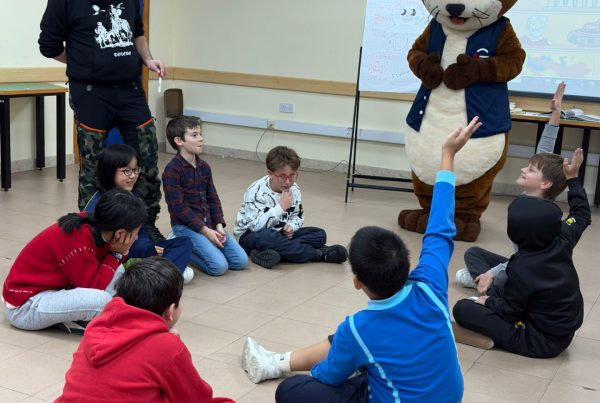Finding a high-quality childcare centre is an important decision parents[1] of young children have to make. It is of utmost importance that children aged zero to three experience high-quality Early Childhood Education and Care (ECEC) as this period shapes their learning, development and later life outcomes (OECD, 2017; Campbell et al., 2012; Schweinhart et al., 2005). Childcare provision is becoming increasingly popular in the Maltese islands, however, choosing the right childcare centre for a child remains a huge challenge. If you are thinking of making use of childcare centre services, the research-based evidence on best practice provided in this article informed also by the National Standards for Child Day Care Facilities (2006) might be of help in your final choice.
- Registrations
Make sure that the childcare centre you are looking at is registered with the Department of Quality and Standards in Education (DQSE)[2]. The centre will have a registration certificate showing this.
- The Centre
Visit the centre and meet with the provider to get a sense of the place and the staff members. The centre should display a commitment to include and welcome every child. See if the centre is a good fit for your child, your family and your lifestyle. Quality centres convey a sense of calmness and security that comes from knowing that this is a safe indoor and outdoor place for children. All centres should provide parents with a written manual of policies and procedures that it uses to operate.
- Staff members
Quality depends on knowledgeable, responsible and caring adults who genuinely appreciate infants and toddlers for who they are. There is a sense of engagement, sensitivity and responsiveness when adults interact warmly and frequently with children. Conversations are ongoing and adults respond to young children’s vocalizations, gestures and needs. Through such interactions carers[3] also support children’s bilingual development in Maltese and English and positive attitudes towards languages.
Upon enrolment children are assigned to a ‘designated carer’ (also known as the ‘primary caregiver’). A child builds trust with the designated carer to support his/her emotional well being, to form a secure attachment and to reduce any signs of stress. The designated carer system works out successfully when all the members of the team at the centre support one another (Dalli et al., 2010). Parents can inform the designated carer on any issues about the child and in partnership do what’s best for the child. Designated carers notice children’s learning, recognise its significance and respond in ways that fosters further learning.
Child to carer ratio at the centre should be compliant with the National Standards for Child Day Care Facilities (2006). It is important to keep in mind that though essential good child to carer ratio and knowledgeable adults on its own do not guarantee quality in a childcare centre.
- The Learning Environment
High-quality childcare service also provides an environment that is designed and planned to support care, learning and play (OECD, 2017). The environment is organised with thought and planning, adjusts to individual needs and maximizes the carer’s time. The learning environment should be an area where young children can be active within different indoor and outdoor places where they can gain more knowledge and understanding of the world around them through all of their senses and whole body action.
Play is the central medium through which children learn, develop and acquire the desired learning outcomes within the centre. Resources are accessible to children, developmentally appropriate and used effectively to stimulate, support and extend children’s learning. Quality in childcare service is not about a prescriptive curriculum that follows a traditional early childhood focus on sequenced structured activities for young children. Instead, it is a developmentally appropriate, unhurried, built-in learning experience that follows the rhythm of each and every child. Carers have time to slowly diaper the child, to help through the anxiety of transitions and separations, or to appreciate the pleasure of child’s initiated play and discovery (Greenman, 2010). These authentic caring responses are essential components of teaching, of nurturing children towards independence and are valued as educational, breaking down the false dichotomy there is between early education and care (Murray, 2016).
- Parental Involvement
Quality in childcare centres is when parents feel welcome and collaboratively in control. There are informal opportunities and planned events involving families to foster a learning community in the best interests of the child. Research shows that parental involvement in childcare services has a major impact on children’s achievements and social development (Powell et al., 2010; Edwards et al., 2008). Parents have a fundamental right and obligation to be involved, informed, provide feedback and participate in key decisions concerning their child during their childcare journey (UNICEF, 2008; OECD, 2006). It is extremely important that childcare staff members communicate with parents the vision and goals of the centre and the best way these are achieved since there might be misconceptions, such as ‘school readiness’ (Bodrova et al., 2004). Adults views and expectations of quality childcare centres might be that of a place for ‘school readiness’ (formal schooling), perceived as the ability to name shapes, letters or numbers without understanding the significance of the holistic development of the child which is key to successful lifelong learning.
[1] The word ‘parents’ in this article refers to all those adults holding prime responsibility for the upbringing and care of a child.
[2] The DQSE within the Ministry for Education and Employment is the body that is responsible for operating a regulatory system for the childcare sector in Malta.
[3] The word ‘carer’ in this article refers to those working with infants and toddlers in childcare centres.
Charmaine Bonello
Education Officer
, Quality Assurance Department (DQSE)
Ministry for Education and Employment




